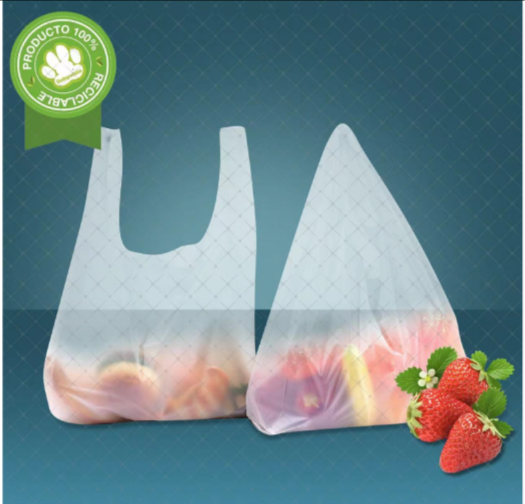compostable shopping bags
The Future of Sustainable Shopping Compostable Shopping Bags
In recent years, the conversation surrounding environmental sustainability has intensified, particularly in relation to single-use plastics. Many consumers are becoming increasingly aware of their ecological footprint and are seeking alternatives that are not only practical but also environmentally responsible. One of the most promising solutions to the plastic bags dilemma is the emergence of compostable shopping bags. As we explore this innovative alternative, we will uncover their benefits, challenges, and the future they promise for a greener planet.
What Are Compostable Shopping Bags?
Compostable shopping bags are designed to break down into non-toxic components through natural biological processes when exposed to the right conditions. Unlike traditional plastic bags, which can take hundreds of years to decompose in a landfill, compostable bags can decompose within a few months in a composting environment. These bags are typically made from plant-based materials, such as cornstarch, tapioca, or other renewable resources. This means that when they break down, they contribute nutrients back into the soil, rather than polluting the earth.
Environmental Benefits
The environmental benefits of compostable shopping bags are significant. Firstly, they help reduce plastic waste. According to the United Nations, an estimated 300 million tons of plastic are produced each year, with a considerable portion ending up in oceans, harming wildlife and ecosystems. By using compostable bags, we can potentially decrease the volume of plastic waste that contributes to these environmental issues.
Secondly, compostable bags can help improve soil health. As these bags decompose, they add organic matter to the soil, which can enhance soil structure, water retention, and fertility. This is particularly advantageous in agricultural settings, where healthy soil is critical for growing crops.
Moreover, compostable shopping bags are often made from renewable resources, which contrasts sharply with conventional plastics that rely on fossil fuels
. Utilizing plant-based materials reduces our dependence on non-renewable resources and plays a role in lowering greenhouse gas emissions.compostable shopping bags

Challenges and Considerations
Despite their many benefits, compostable shopping bags are not without challenges. One of the primary concerns is the misconception that all biodegradable products will break down efficiently in any environment. To effectively decompose, compostable bags must typically be processed in commercial composting facilities that can provide the necessary heat, moisture, and microbial activity.
Without proper disposal methods, these bags may still end up in landfills, where the conditions are not conducive to decomposition. Hence, consumer education is essential. People need to understand that simply purchasing compostable bags is not enough; proper disposal and composting practices must be followed to realize their environmental advantages.
Another challenge is the cost. Compostable shopping bags tend to be more expensive than traditional plastic bags. This might incentivize some retailers to avoid their use due to budget constraints, despite their long-term environmental benefits. However, as demand increases and production scales up, we can hope to see a reduction in costs.
Looking Ahead
As we move towards a more sustainable future, compostable shopping bags represent a critical step in transforming consumer habits and reducing plastic pollution. While there is still work to be done in terms of infrastructure, education, and cost, the potential for these bags to create a positive environmental impact is undeniable.
More countries and regions are implementing bans on single-use plastics, which opens the door for compostable alternatives to become mainstream. Additionally, innovations in material science may lead to even better compostable options that maintain the durability and utility of traditional plastic bags.
The future is bright for compostable shopping bags. As consumers, businesses, and policymakers work together towards a sustainable future, these bags stand out as a viable solution to the pressing issue of plastic pollution. Making the switch to compostable bags is not just a trend but a vital movement towards a healthier planet, ensuring that we leave behind a cleaner, greener world for future generations.
-
Self Seal Bags: Secure, Clear, and Customizable Packaging for Every IndustryNewsAug.15,2025
-
Paper Cups: Bulk Solutions for Events, Cafés, and Eco-Friendly ServiceNewsAug.15,2025
-
Laminated Bags: Durable, Customizable Packaging for High-Impact BrandsNewsAug.15,2025
-
Grocery Bags: Smart, Sustainable, and Scalable Solutions for RetailersNewsAug.15,2025
-
Drawstring Bags: Versatile, Customizable, and Cost-Effective for Bulk UseNewsAug.15,2025
-
Disposable Gloves: Wholesale Solutions for Safety, Hygiene, and EfficiencyNewsAug.15,2025
-
Have the freedom of customizing your custom mailers any way you want! Our dedicated packaging support will help deliver you the mailing experience you need to elevate your shipping experience to the next level! Start making a strong impression on your customers and stand out from your competitors! -
LIYA uses high quality raw materials which directly purchased from large enterprises domestic and overseas such as PetroChina, Sinopec, Sabic, Equate, ExxonMobil, Dow Chemical, Total, and Borouge, ensuring the price advantage and quality of the raw materials. -
LIYA uses high quality raw materials which directly purchased from large enterprises domestic and overseas such as PetroChina, Sinopec, Sabic, Equate, ExxonMobil, Dow Chemical, Total, and Borouge, ensuring the price advantage and quality of the raw materials.





